To meet the requirements of innovation and change in legislative thinking in the new era of the nation, the core of the National Assembly , the National Assembly deputies, need to improve their quality, have sufficient qualities and capacity...
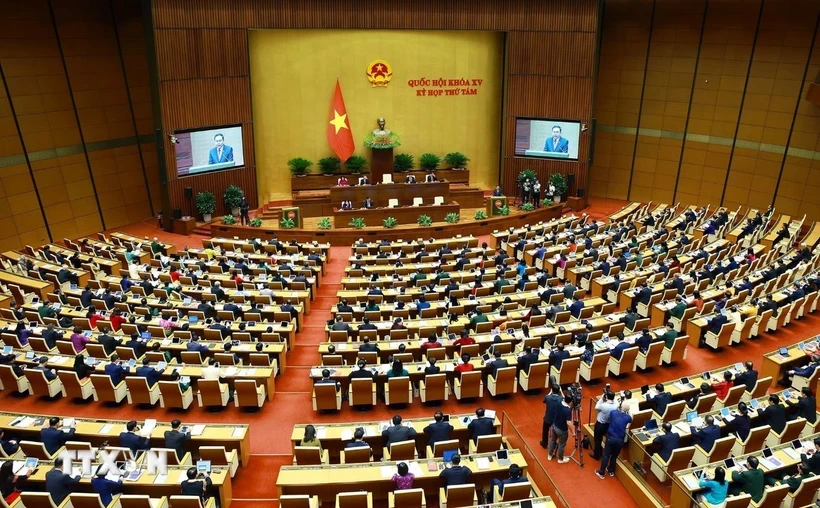
Given the central position of the socialist rule-of-law State and the reality and tasks set forth in legislative work, removing "bottlenecks of bottlenecks," innovation in the organization and operation of the National Assembly, especially innovation in thinking about lawmaking, supervision, and decision-making on important issues, is very urgent.
Initial movements
Determining the importance and “great responsibility” of the National Assembly in building a socialist rule-of-law state and removing “bottlenecks” in national development, the thinking on law-making has been clearly demonstrated from the beginning of the term in Conclusion 19-KL/TW in 2021 on the orientation of the Law-making Program for the 15th National Assembly term. Conclusion 19-KL/TW affirmed the spirit of not building framework laws or pipeline laws.
This spirit of law-making continued to be expressed more clearly in the first session of the 8th Session of the 15th National Assembly. In the discussions on law-making at the 8th Session, National Assembly deputies frankly pointed out the current institutional "bottlenecks", from which there were proposals to shift the management mindset to unblocking resources, strengthening decentralization and delegation of authority thoroughly and substantially, ensuring sufficient capacity for individuals and decentralized agencies to organize and carry out work; and reducing and simplifying administrative procedures.
For example, in cutting and simplifying administrative procedures, from 2021 to August 2024, more than 3,000 business regulations were cut and simplified, showing that cumbersome administrative procedures in business are a bottleneck and a major obstacle for people and businesses. This number also shows some of the limitations in the work of building and promulgating legal documents in recent times.
To minimize the situation of issuing administrative procedures and then reviewing them to reduce them, the most effective solution is to focus on reviewing right from the stage of building and promulgating legal regulations, in which special attention should be paid to asking for opinions and synthesizing.
Report No. 524 of the Prime Minister presented at the 8th Session of the National Assembly stated that the issuance of detailed documents is still limited and the situation of slow issuance has not been overcome.
According to delegate Vu Thi Luu Mai ( Hanoi ), in the future, when the law is reformed in the direction of only regulating issues of principle, the responsibility for law-making will be placed more on the Government's shoulders, the number of guiding documents will increase very quickly and the nature will also become more complicated. In terms of progress, it is necessary to further promote personal responsibility in ensuring timeliness.
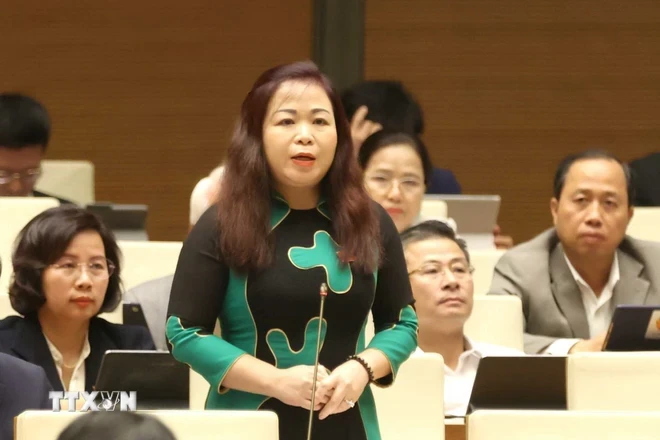
Regarding the quality of documents, it is necessary to promote objectivity, avoid local interests, and strictly implement Regulation No. 178-QD/TW dated June 27, 2024 of the Politburo on "Controlling power, preventing and combating corruption and negativity in law-making work," to avoid creating "bottlenecks" in the organization and implementation of the Law.
Among the draft laws discussed at this session, there are many draft laws that "amend many laws to one law" to remove difficulties in investment, production and business, such as the draft law amending and supplementing a number of articles of the Law on Planning, the Law on Investment, the Law on Investment under the public-private partnership model and the Law on Bidding.
At the parliament, National Assembly deputies pointed out that many current regulations in the four amended Laws are creating bottlenecks for the state administrative apparatus, businesses and people.
According to delegate Tran Huu Hau (Tay Ninh), currently, the work of purchasing, renovating, upgrading, expanding, and constructing items of works in projects that have been invested in construction using regular expenditure funds with a value of over 100 million VND, applying the Law on Bidding, will have to be bid. This is a long-standing regulation, no longer suitable for the socio-economic development of the country, with the devaluation of materials, raw materials, and labor costs. Therefore, it is necessary to amend the Law in the direction of raising the level of bidding for works using regular expenditure funds to the same level as public investment, in order to "strongly remove obstacles, create openness right in the administrative apparatus, in our agencies and organizations."
Changing legislative thinking, elevating the level of National Assembly deputies
General Secretary To Lam emphasized: As the body exercising legislative power, the National Assembly needs to play a leading role and have solutions to ensure that the legal system is enacted to meet the requirements of the Socialist Republic of Vietnam's rule of law state.
This viewpoint was reaffirmed and clarified by the General Secretary in his speech at the Opening Session of the 8th Session of the 15th National Assembly: Of the three biggest bottlenecks today, which are institutions, infrastructure and human resources, institutions are the "bottleneck of bottlenecks"... This is the responsibility of the entire political system, but a huge responsibility rests on the shoulders of the National Assembly, the agencies of the National Assembly, the National Assembly deputies and the Government.
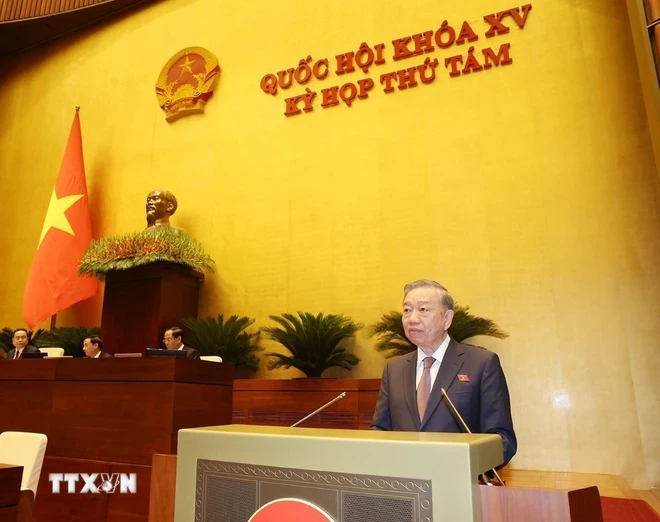
To remove institutional bottlenecks, it is clear that the two institutions that create institutions are needed: the National Assembly and the Government. Regarding the National Assembly, according to Associate Professor, Doctor Le Minh Thong, former Vice Chairman of the Law Committee, member of the 13th National Assembly, in the new era of development of the country, the legislative activities of the highest State power agency should not focus on institutionalizing the management power of the state apparatus but must focus on creating a solid and stable legal framework for a social democracy and civil liberties.
“The State needs to change its thinking from thinking about rights to thinking about obligations. The State only does things that society, the economy, and businesses cannot do, and cannot take on too much. Because taking on too much will be a lot of work, and too much work will not be done properly. The State only focuses on the necessary issue of institutional building,” Associate Professor, Dr. Le Minh Thong emphasized, saying that the National Assembly needs to change its legislative thinking and respect the Government's right to make rules.
To meet the requirements of innovation and change in legislative thinking in the new era of the nation, the core of the National Assembly, the National Assembly deputies, need to improve their quality, have sufficient qualities, capacity, qualifications, and vision in discussing and deciding on legal policies.
According to Dr. Nguyen Thi Viet Nga, Deputy Head of the National Assembly Delegation of Hai Duong province, full-time National Assembly deputies play an important and core role, and are also one of the important factors in innovating the activities of the National Assembly and its agencies.
However, the current proportion of full-time National Assembly deputies has not yet reached the figure of “at least 40%” set out in the Law amending and supplementing a number of articles of the Law on Organization of the National Assembly in 2020. This is due to many reasons, but mainly related to the structure and standards of each deputy. Requiring many structures and standards for one deputy will lead to the selection of candidates to be nominated as full-time National Assembly deputies being limited.
Besides, if we only focus too much on the structure and the proportion of full-time deputies without paying attention to the quality of full-time deputies, we will still not be able to meet the requirements. A high proportion of full-time deputies must go hand in hand with a high quality of full-time deputies. Only then will the activities of the National Assembly in general and of full-time National Assembly deputies in particular be truly professional and effective.
Improving the quality of National Assembly deputies, emphasizing the quality of full-time National Assembly deputies, is an inevitable requirement to contribute to improving the overall quality of the National Assembly's activities in response to the urgent need to remove institutional "bottlenecks of bottlenecks".
Thoroughly grasping the guiding viewpoint of our Party leader on the great responsibility placed on the shoulders of the National Assembly and National Assembly deputies, and to achieve that goal, it is necessary to continue reviewing and perfecting legal regulations, supplementing necessary mechanisms to select deputies who are truly "qualified and dedicated enough," creating conditions for National Assembly deputies to fulfill their duties as people's representatives, worthy of the trust and expectations of voters./.
Source: https://baolangson.vn/xay-dung-nha-nuoc-phap-quyen-trong-trach-khoi-thong-diem-nghen-5028897.html




![[Photo] Parade to celebrate the 50th anniversary of Laos' National Day](/_next/image?url=https%3A%2F%2Fvphoto.vietnam.vn%2Fthumb%2F1200x675%2Fvietnam%2Fresource%2FIMAGE%2F2025%2F12%2F02%2F1764691918289_ndo_br_0-jpg.webp&w=3840&q=75)


![[Photo] Worshiping the Tuyet Son statue - a nearly 400-year-old treasure at Keo Pagoda](/_next/image?url=https%3A%2F%2Fvphoto.vietnam.vn%2Fthumb%2F1200x675%2Fvietnam%2Fresource%2FIMAGE%2F2025%2F12%2F02%2F1764679323086_ndo_br_tempimageomw0hi-4884-jpg.webp&w=3840&q=75)
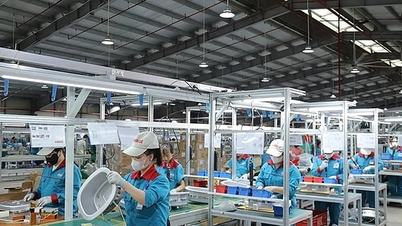

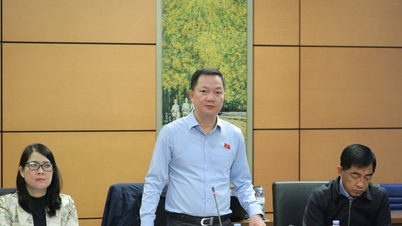









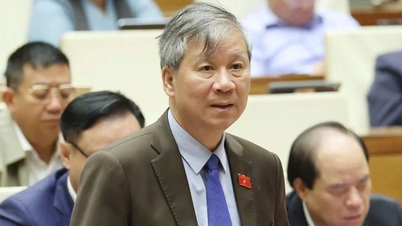
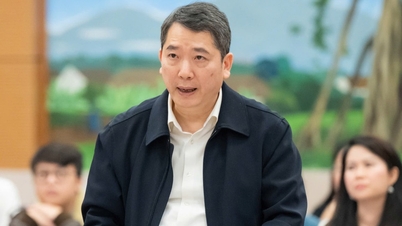











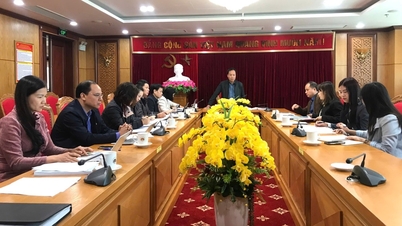









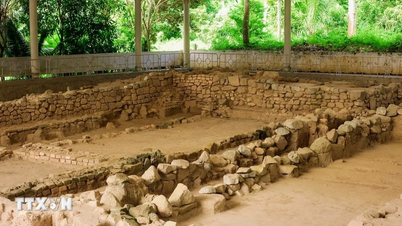



![[Video] Protecting World Heritage from Extreme Climate Change](https://vphoto.vietnam.vn/thumb/402x226/vietnam/resource/IMAGE/2025/12/03/1764721929017_dung00-57-35-42982still012-jpg.webp)


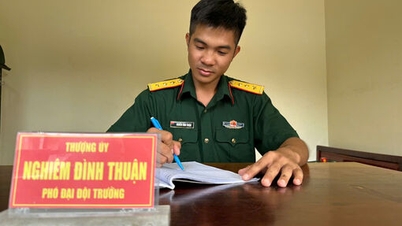



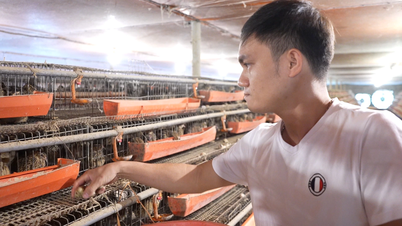











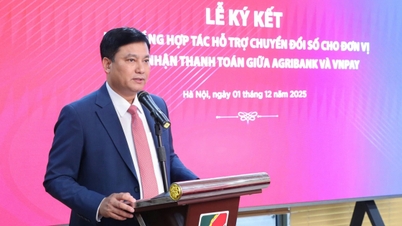

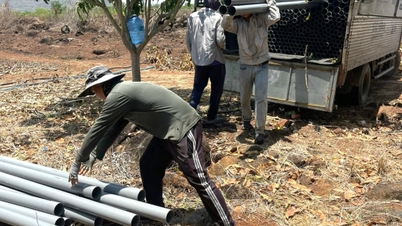


















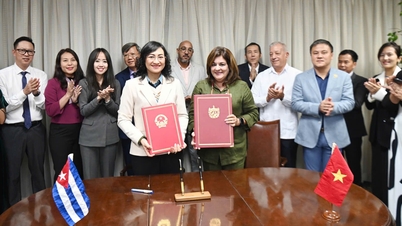


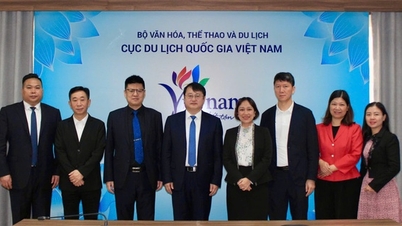
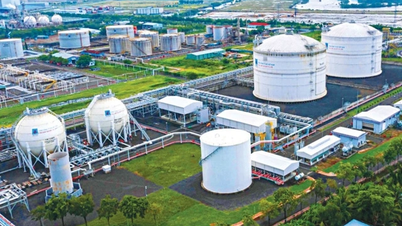


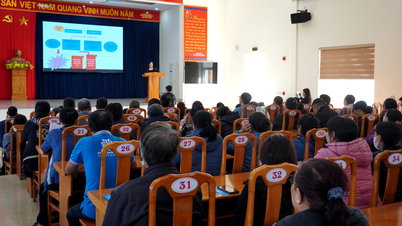
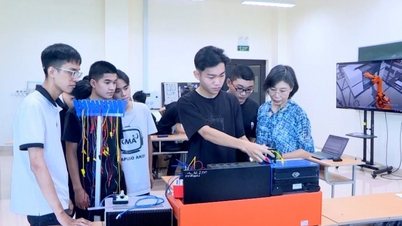

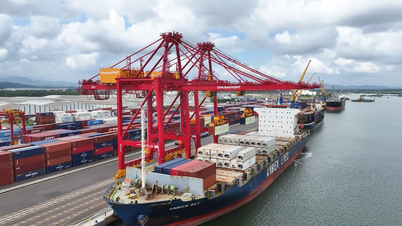












Comment (0)